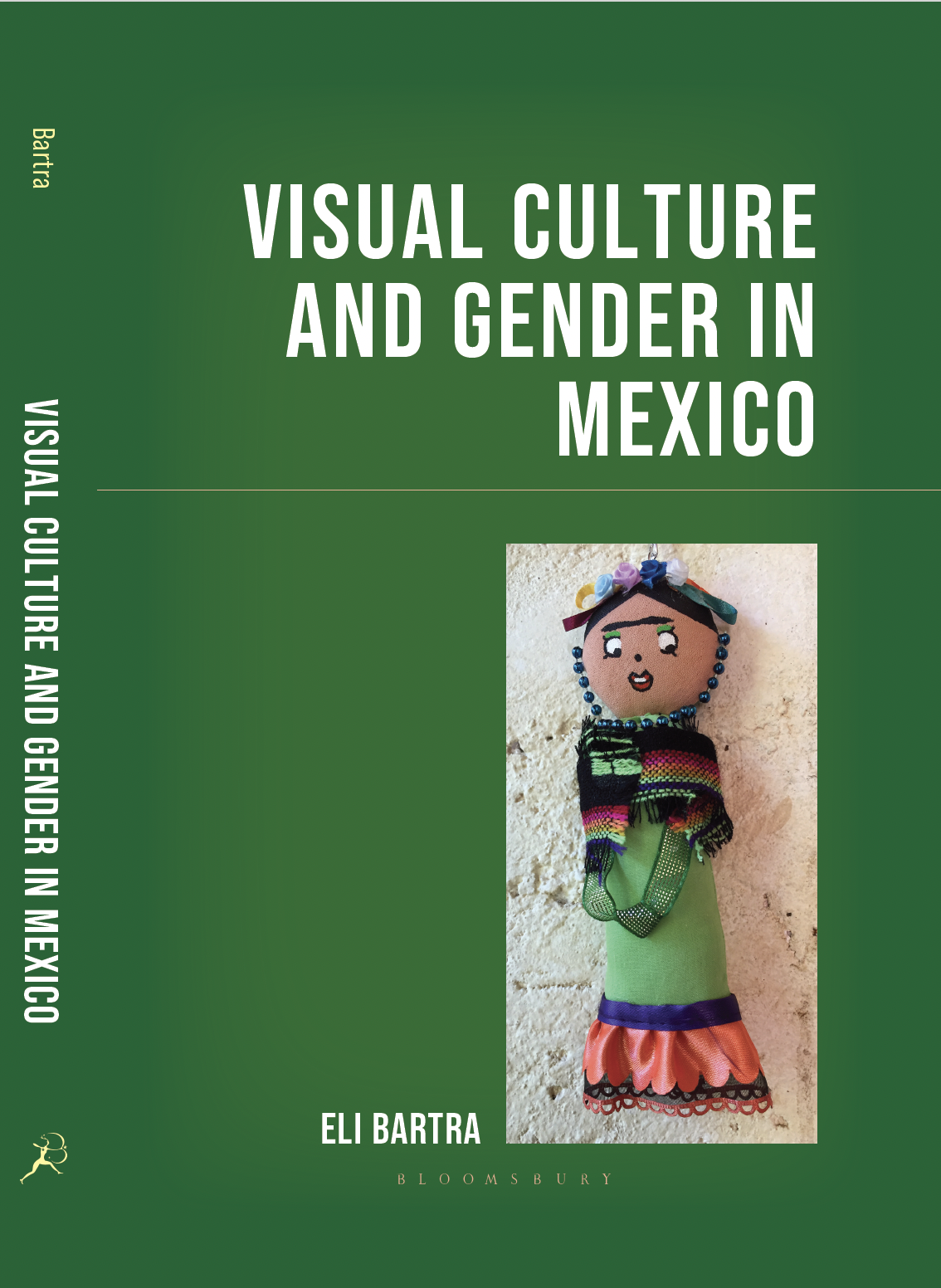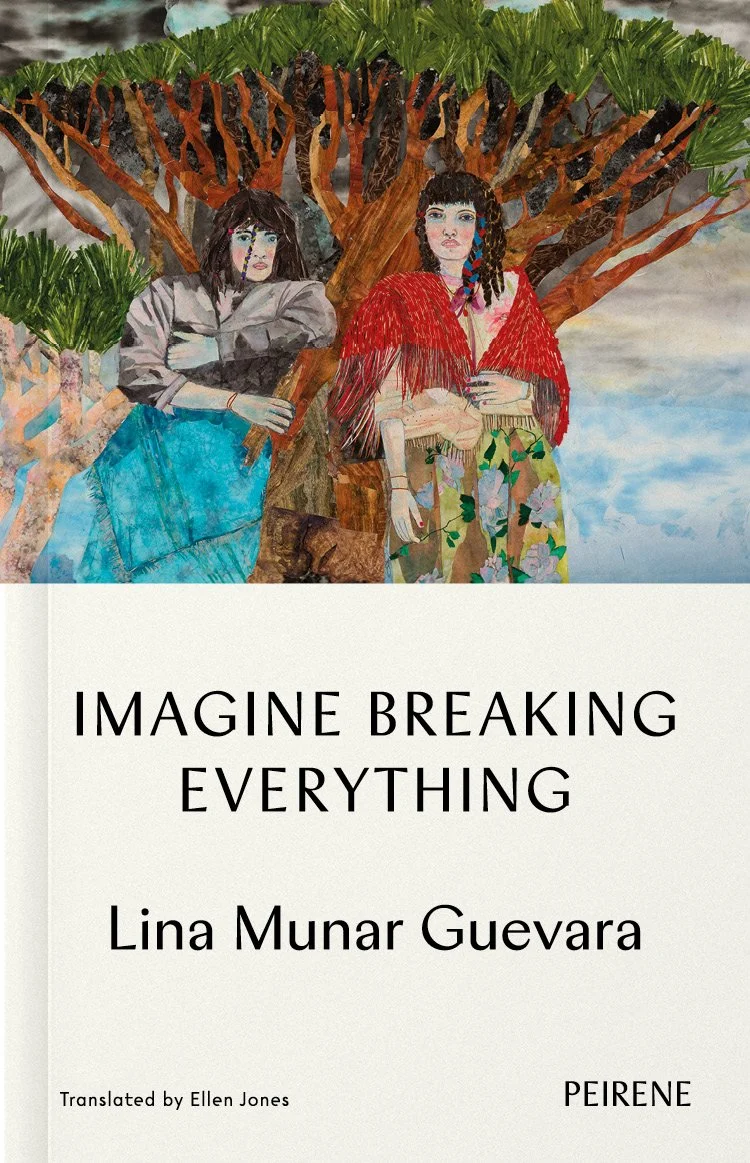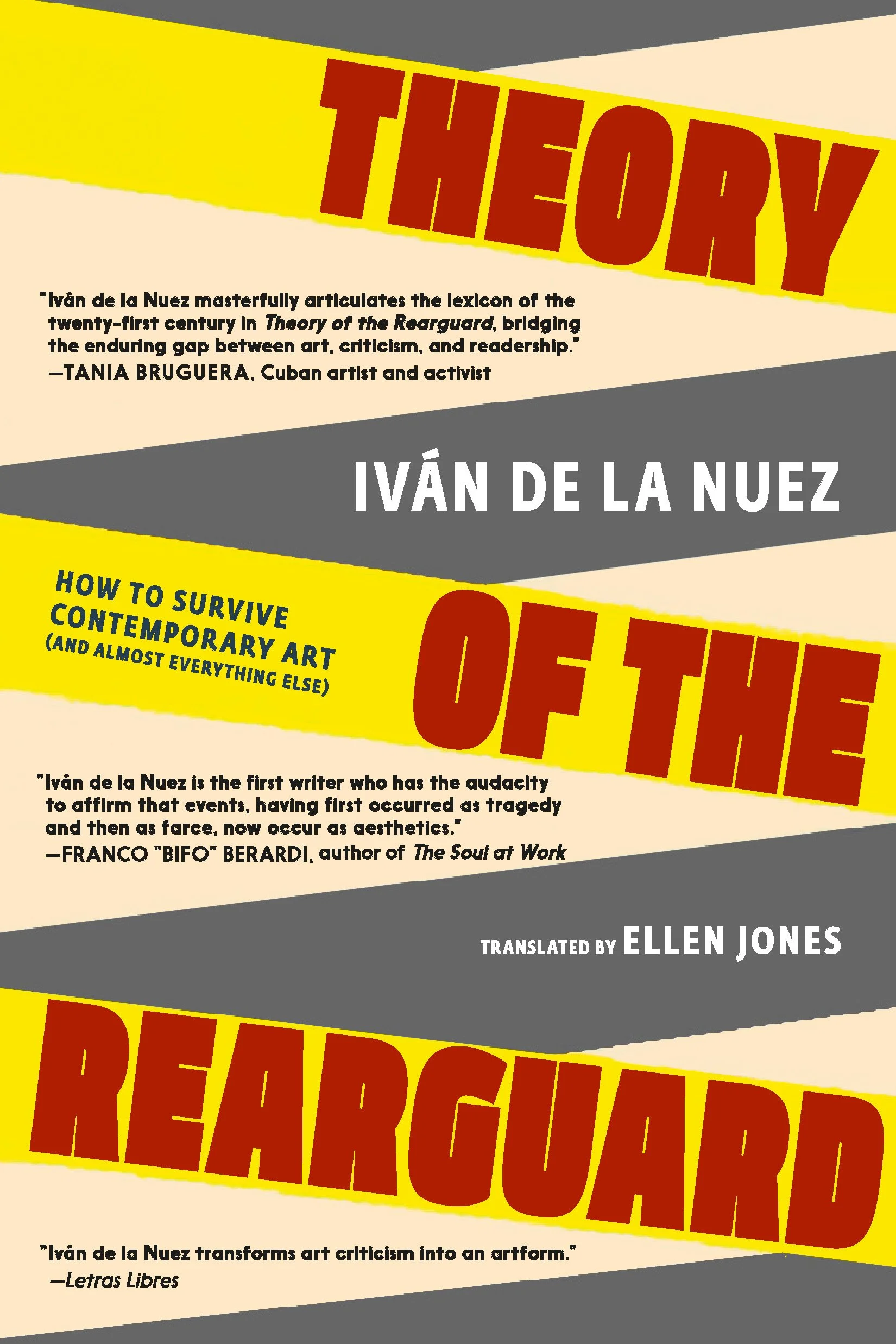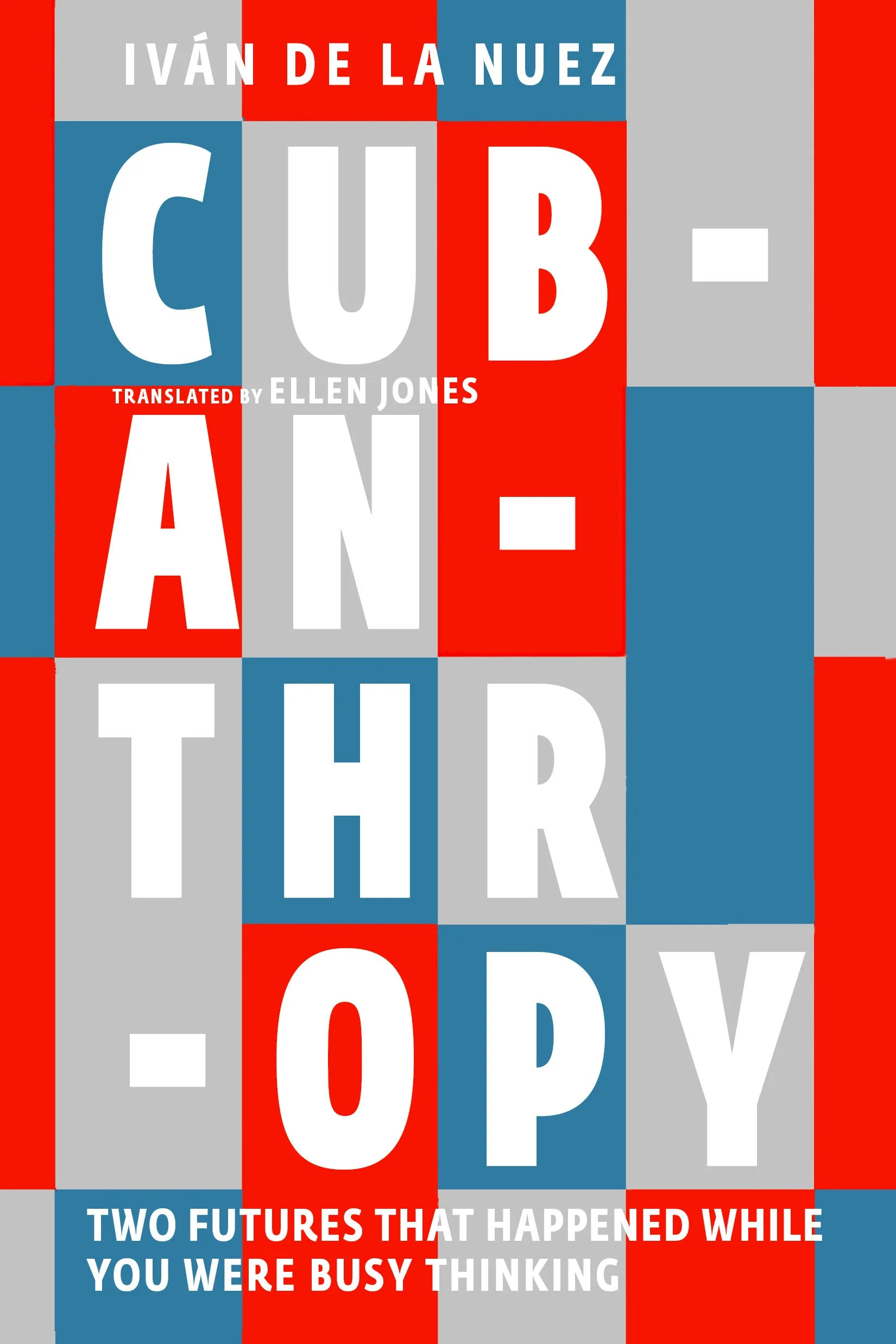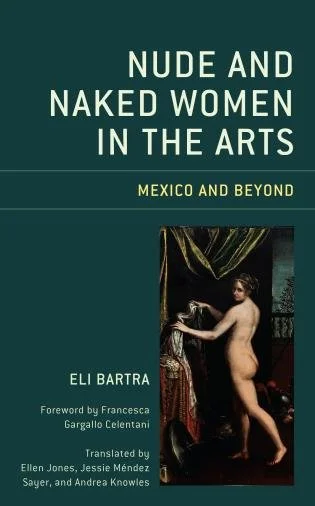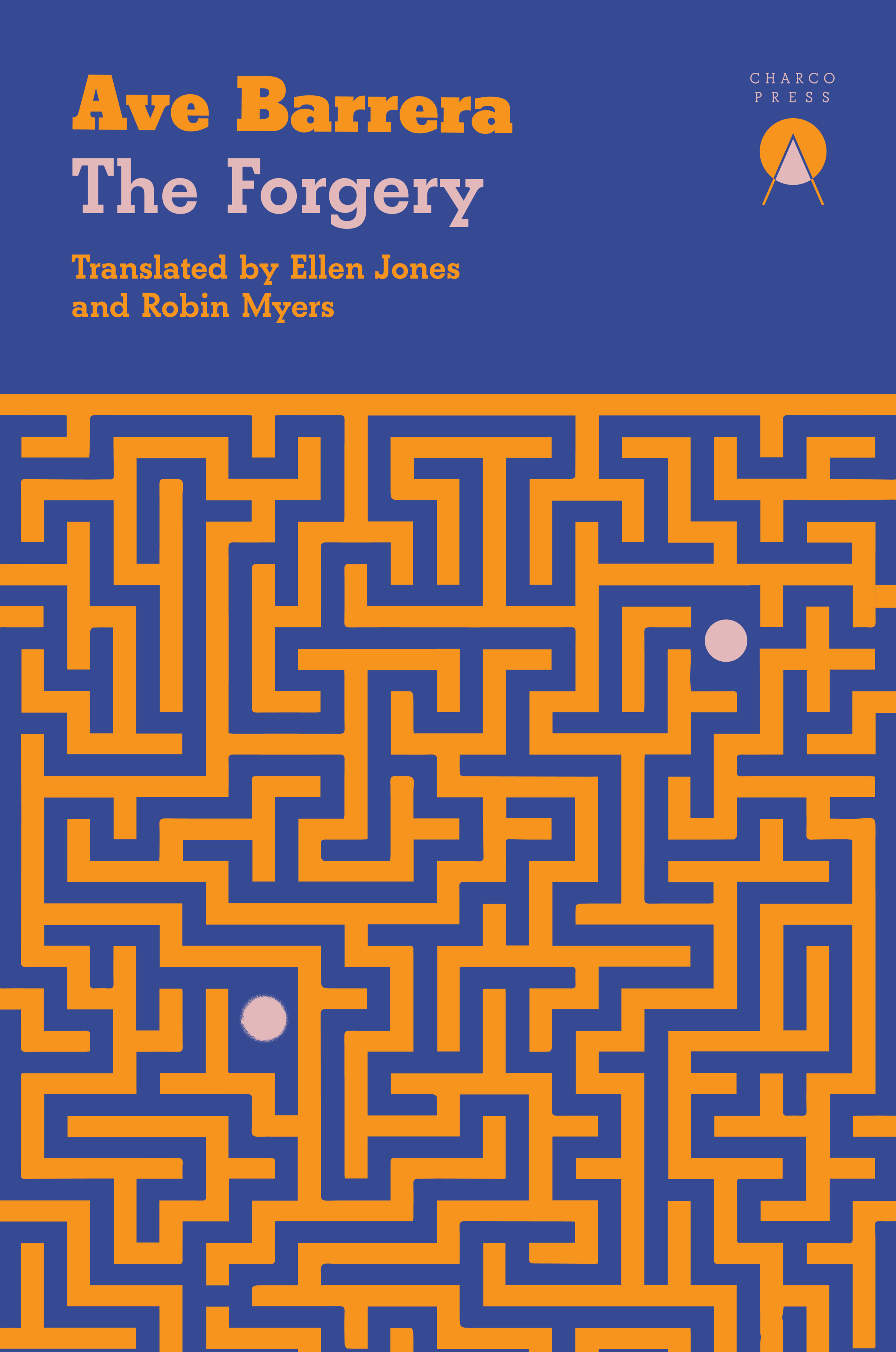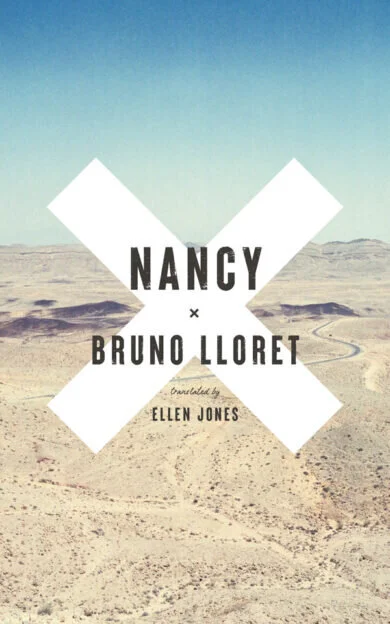SEEKING A PUBLISHER
Interior Border by Astrid López Méndez, a playful and cerebral book-length essay about poetry and its connection to the mother tongue (original Spanish Alacraña/UNAM 2020). Shortlisted for the Sundial Literary Translation Award 2025. Read an excerpt in the New England Review.
Formaldehyde by Carla Faesler, a stunning, poetic, surreal novel that centres on a human heart in a jar, a brilliantly suggestive metaphor for a country wounded by an epidemic of forced disappearances, and by the symbolic and literal dismembering of its people (original Spanish Formol, Tusquets 2014). Get in touch to read a sample.
COMING SOON
San Fernando: Last Stop by Marcela Turati (Seven Stories)
Balún Canán by Rosario Castellanos (Pushkin 2027)
Visual Culture and Gender in Mexico
By Eli Bartra
(Bloomsbury 2026)
Visual Culture and Gender in Mexico opens by setting out a conceptual, political, historical, and personal framework that serves to anchor the Mexican visual culture it goes on to address. To this end, it also provides a brief overview of feminist thinking from the late nineteenth century to the present day, which has nourished these visual artists.
The notion of uprootedness runs through the entire work, as does the idea of nomadism and nomadic-critical subjects. Eli Bartra addresses loosely defined traditional, modern and contemporary art, including photography and film, as components of the visuality of this corner of the Global South.
The book goes beyond recognised figures such as Frida Kahlo, who have dominated Mexico's visual culture almost exclusively, though it does not dismiss them. It thus offers a visual mosaic that presents the work of photographers, filmmakers and a few artists whose creativity has no qualms about crossing boundaries; one comes from China, another looks out over the Mediterranean, another is based in Guanajuato, another lives in Querétaro, and there is even a European who walks the desert in northern Mexico, unearthing wounds.
Imagine Breaking Everything
By Lina Munar Guevara
(Peirene 2025)
It’s a rainy weekend in Bogotá, and eighteen-year-old Melissa is about to graduate from school. If, that is, she can scrape together the money to pay for the printer she broke. Melissa used to break a lot of things, but after five years of living with her aunt Anahí, she has become much better at controlling her anger. Then, out of the blue and for the first time in six months, Melissa’s mother calls her and invites her to spend the weekend together in their old neighbourhood. Melissa is excited to spend time with her, but nervous about returning to the scene of her troubled early adolescence. Will she make it to Monday morning without jeopardising her future – or being swallowed up by her past?
Imagine Breaking Everything is a debut novel by an exciting new voice from South America – a frank and tender portrait of one young woman, touching on gender, childhood and class in Colombia.
‘What makes [Imagine Breaking Everything] an unforgettable read is the combination of who Melissa is as a character and her voice. Not only is she the rare female protagonist who externalizes her rage, literally punching first so she won’t become the punching bag, but as a first-person narrator she is brutally honest, funny, self-aware, and able to create moments of utter heartbreak and insight while staying true to the rawness of Bogotá slang.’ – Diana Andrade Melgarejo , Latin American Literature Today
Apparitions
By Margo Glantz
(Charco Press 2026)
Two nuns, and one obsessed mother, doing everything in their power to achieve communion with the one they love.
Sister Lugarda de la Encarnación takes the lash, and an unnamed mother gets down on her hands and knees―sacramental postures demanded by inscrutable men. Apparitions is a novel of ecstasy pursued, desire transmogrified into devotion, and obedience as a passionately pursued, not entirely free choice. Erotic, and suffused with painting, music, art, it’s an incantatory exploration of what it means to abandon the world, and to use your body―in pain, and in pleasure―as a way of finally coming to know the divine.
Restoration
By Ave Barrera
(Charco Press 2025, co-translated with Robin Myers)
Shortlisted for the Cercador Prize 2025
Propelled by female desire, shaped by the violence of the male gaze, and inspired by the endless vitality of old stories remade anew, Restoration takes on Bluebeard, Salvador Elizondo, Juan Rulfo, Angela Carter, Octavio Paz, Mariana Enriquez, and Amparo Dávila to produce a novel of obsession, reclamation, and romance gone very, very wrong. Jasmina has been hired by her maybe-boyfriend to restore his family home, a grubby, abandoned time capsule where a great artist once lived. As she moves from room to room—scrubbing, scraping, plastering over cracks—the stories inhabiting them awaken, and the lives of the women who came before her begin to overlap with her own. Who is the woman in the photograph? And what secrets linger in that last locked room? Restoration is a ghost story with porous borders, between Jasmina and these forgotten women, between the novel and us. And the questions Barrera asks may be about what’s behind our own barred door.
Read Cory Oldweiler’s review of the translation in Southwest Review.
Theory of the Rearguard
By Iván de la Nuez
(Seven Stories Press 2025)
Cuban art critic and curator Iván de la Nuez returns with an ironic epitaph for contemporary art.
Art criticism that examines contemporary art in the 21st century in relationship to politics, iconography, and literature.
“Iván de la Nuez transforms art criticism into an artform.” —Letras Libres
Theory of the Rearguard examines how contemporary art is in tension with survival, rather than in relation to life. In the twentieth century, Peter Bürger’s Theory of the Avant-Garde was a cult book focused on the two main tasks that art demanded at the time: to break its representation and to destroy the barrier that separated it from life.
Forty years later, The Theory of the Rearguard is an ironic manifesto about contemporary art and its failures, even though Iván de la Nuez does not waste his time mourning it or disguising it. He argues that our times are not characterized by the distance between art and life, but by a tension between art and survival, which is the continuation of life by any means necessary.
In the twenty-first century, Iván de la Nuez examines art in relationship to politics, iconography, and literature. This austere and sharp book—in which Duchamp stumbles upon Lupe, the revolution upon the museum, Paul Virilio upon Joan Fontcuberta or Fukuyama upon Michael Jackson—wonders if contemporary art will ever end. Because if it were mortal—“just as mortal as everything it invokes or examines under its magnifying glass”—de la Nuez argues would be worth writing an epitaph for it as he has done in this sparkling book of art criticism.
This Mouth is Mine
By Yásnaya Elena A Gil
(Charco Press, 2024)
Winner of a 2024 PEN Translates! award
Despite the more than 200 Indigenous languages spoken in Mexico, including 63 that are officially recognized and celebrated by the Mexican government, linguistic diversity is and has been under attack in a larger culture that says bilingual is good when it means Spanish and English, but bad when it means Nahuatl and Spanish. Yásnaya Aguilar, a linguist and native Mixe speaker, asks what is lost, for everyone, when the contradictions inherent in Mexico’s relationship with its many Indigenous languages mean official protection and actual contempt at worst, and ignorance at best. What does it mean to have a prize for Indigenous literature when different Indigenous languages are as far from each other as they are from Japanese? What impact does considering Tzotzil “cultural heritage” have on our idea of it, when it is still being used, and refreshed, and changed (like every other language) today? How does the idea of Indigeneity stand up, when you consider Indigenous peoples outside of the frame of colonialism? Personal, anecdotal, and full of vivid examples, Aguilar does more than advocate for the importance of resistance by native peoples: she offers everyone the opportunity to value and enjoy a world in which culture, language, and community is delighted in, not flattened. “We have sacrificed Mexico in favor of creating the idea of Mexico” she says. This Mouth Is Mine is an invitation to take it back.
Read an excerpt in Latin American Literature Today.
Read a review in the Times Literary Supplement (full article behind the paywall).
Beyond Mestizaje: Contemporary Debates on Race in Mexico
Edited by Tania Islas Weinstein and Milena Ang
(Amherst College Press, 2024)
Racism has historically been a taboo topic in Mexico. This is largely due to the nationalist project of mestizaje which contends that because all Mexicans are racially mixed, race is not a salient political issue. In recent years, however, race and racism have become important topics of debate in the country’s public sphere and academia. This book introduces readers to a sample of these diverse and sometimes conflicting views that also intersect with discussions of class. The activists and scholars included in the volume come from fields such as anthropology, linguistics, history, sociology, and political science. Through these diverse epistemological frameworks, the authors show how people in contemporary Mexico interpret the world in racial terms and denounce racism.
Cubanthropy: Two Futures that Happened While You Were Busy Thinking
By Iván de la Nuez
(Seven Stories Press, 2023)
Cuban art critic and curator Iván de la Nuez explores the cultural effects of the policies that have tried to constrain or liberate Cuba in recent decades.
In this intellectual autobiography, the concept of cubanthropy, rather than a doctrine, is more like an energy. It’s a coinage that’s useful for defining the growing whirlwind between anthropology and entropy, the street and the library, the nightclub and the museum, the island and the world. These collected essays, written in Iván de la Nuez’s trademark ironic, erudite style, range in subject matter from the Berlin Wall to Havana’s Malecón. This book examines recent clashes between the market and democracy, the digital era and post-colonialism, utopia and tourism, the diaspora and the nation, racism and Big Data, Guantánamo and Reggaeton, soccer and baseball, Obama and the Rolling Stones, Europe and Donald Trump.
It is written between the socialist perspective of the Cold War and the neoliberal perspective of subsequent years, and is equally critical of both and of geopolitics in the age of globalization. Cubanthropy doesn’t try to explain Cuba to the world, but rather, on the contrary, to use Cuba model that contains that world and its conflicts.
“Nothing explains our vexed world quite like Cuba and no one anywhere writes more brilliantly, more prophetically, more impossibly than Iván de la Nuez. As in all of his finest work, Cubanthropy delivers you beyond your old horizons into a realm of startling possibilities. Do not miss this extraordinary book or this extraordinary warlock of a writer.” —Junot Díaz, author of This Is How You Lose Her
"Cubanthropy may just be the smartest writing on Cuba—and beyond—I've read in ages. Insightful, unsparing, funny, and with an unerring eye for the paradoxical, Iván de la Nuez has written the definitive compilation on 21st-century Cuba. Essential reading for all who care about how the past, present, and future are disturbingly converging on the island, and off."
—Cristina García, author of forthcoming Vanishing Maps
Read an excerpt from the book in No Country Magazine.
Read a review by Myriam Pensack in The Nation.
The Remains
By Margo Glantz
(Charco Press, March 2023)
Shortlisted for the Warwick Prize for Women in Translation 2023
Shortlisted for the Oxford-Weidenfeld Translation Prize 2024
The way you hold a cello, the way light lands in a Caravaggio, the way the castrati hit notes like no one else could—a lifetime of conversations about art and music and history unfolds for Nora Garcia as she and a crowd of friends and fans send off her recently deceased ex-husband, Juan. Like any good symphony, there are themes and repetitions and contrapuntal notes. We pingpong back and forth between Nora’s life with Juan (a renowned pianist and composer, and just as accomplished a raconteur) and the present day (the presentness of the past), where she sits among his familiar things, next to his coffin, breathing in the particular mix of mildew and lilies that overwhelm this day and her thoughts. In Glantz’s hands, music and art access our most intimate selves, illustrating and creating our identities, and offering us ways to express love and loss and bewilderment when words cannot suffice. As Nora says, “Life is an absurd wound: I think I deserve to be given condolences.”
Read a review by Erik Noonan in Full Stop.
Nude and Naked Women in the Arts:
Mexico and Beyond
By Eli Bartra
Co-translated with Jessie Méndez Sayer and Andrea Knowles
(Lexington Books, 2022)
Nude and Naked Women in the Arts: Mexico and Beyond is a study of female nudity as represented by men and women in Mexico and other parts of the world through analysis of both the high arts and folk arts. Eli Bartra explores the diverse forms of artistic expression and their link to the social construction of female gender. This approach is crucial to understanding how forms of discrimination are created and recreated — sometimes in very apparent ways and other times more subtly — and how they contribute to the perpetuation of gender hierarchies. Eli Bartra examines the assertion of gender differences in artistic creation and the sexist (and at times misogynistic) imagery of nude women as represented by men.
The Forgery
By Ave Barrera
Co-translated with Robin Myers
(Charco Press, 2022)
A failing artist turned forger, an architectural masterpiece hidden behind high walls, an impish vagabond, and some very resourceful, very intimidating twins—The Forgery pays homage to greats like Juan Rulfo and Luis Barragán, traversing late 20th-century Guadalajara with the exuberance and eccentricity of an 18th-century picaresque.
Read my interview with Ave in Southwest Review here.
Nancy
By Bruno Lloret
Translated by Ellen Jones
(Giramondo Publishing, 2020; Two Lines Press, 2021)
From Chile, a powerful novella which conveys, with great economy and dramatic typography, the energy, brutality and resilience of a life lived at the edge of existence.
In a small city perched between the Pacific Ocean and the Atacama Desert in northern Chile, a dying woman relives her childhood and adolescence in vivid detail. In the trance of her sickness, she recalls her reactions to the breakup of her family, the disappearance of her brother, the defection of her mother, her father’s conversion to Mormonism – snapshots in which sex, violence, poverty and environmental degradation intersect against the oppressive and ecstatic backdrop of religious belief.
‘This world is a desert of crosses,’ she remembers her father telling her – and in the visually striking layout of Nancy, crosses in bold make up the very fabric and rhythm of the book. The text is full of Xs, which can be read in many ways: as multiplication symbols, scars, marks on a treasure map – or as signs of erasure, the striking out of reality, the approach of death, like the cancer that threatens Nancy’s life and memories. In his tragic, electrifying first novel, Chilean author Bruno Lloret creates a condensed epic that both probes and seeks to heal the wounds left by poverty and belief.
“Inventively sly… brilliantly, stunningly translated by Ellen Jones, Nancy proves both bewildering and illuminating. For intrepid readers, indelible rewards await.” —Shelf Awareness (starred review)
“Nancy heralds a future-facing vanguard in Chilean letters…and, despite its deep local roots, belongs to a burgeoning international literature of shared crises.… Ellen Jones makes this difficult translation look easy…Jones’ skill extends from the language all the way down to this deliberate, fraught punctuation.” —Asymptote
“Ellen Jones’s translation is attuned to the asperous beauty of everyday language, and Lloret’s evocations of place” –Elizabeth Bryer in Australian Book Review
Read an excerpt from the novel in Words without Borders.
Read my interview with Bruno Lloret in South West Review.
Read my interview with Denise Kripper in Latin American Literature Today about the process of translating Nancy.
Let’s Talk About Your Wall: Mexican Writers Respond to the Immigration Crisis
Edited by Carmen Boullosa and Alberto Quintero
Translations by Lisa Dillman, Sophie Hughes, Ellen Jones, Victor Meadowcroft, Jessica Méndez Sayer, and Samantha Schnee.
(The New Press, 2020)
Major writers from Mexico weigh in on U.S. immigration policy, from harrowing migrant journeys to immigrant detention to the life beyond the wall
Despite the extensive coverage in the U.S. media of the southern border and Donald Trump’s proposed wall, most English speakers have had little access to the multitude of perspectives from Mexico on the ongoing crisis. Celebrated novelist Carmen Boullosa (author of Texas and Before) and Alberto Quintero redress this imbalance with this collection of essays—translated into English for the first time—drawing on writing by journalists, novelists, and documentary-makers who are Mexican or based in Mexico. Contributors include the award-winning author Valeria Luiselli, whose Tell Me How It Ends is the go-to book on the child migrant crisis, and the novelist Yuri Herrera, author of the highly acclaimed Signs Preceding the End of the World.
Let’s Talk About Your Wall uses Trump’s wall as a starting point to discuss important questions, including the history of U.S.-Mexican relations, and questions of sovereignty, citizenship, and borders. An essential resource for anyone seeking to form a well-grounded opinion on one of the central issues of our day, Let’s Talk About Your Wall provides a fierce and compelling counterpoint to the racist bigotry and irrational fear that consumes the debate over immigration, and a powerful symbol of opposition to exclusion and hate.
For a taster, read my translation of Paula Mónaco Felipe’s ‘Droplets’, in the Fall 2020 issue of BOMB Magazine, or of Yásnaya Elena Aguilar Gil’s ‘Snow and Borders’ in The Baffler.
Trout, Belly Up
By Rodrigo Fuentes
Translated by Ellen Jones
Charco Press, 2019
Shortlisted for the Translators Association First Translation Prize
In this highly original collection of interconnected short stories, the Guatemalan countryside is ever-present, a place of timeless peace yet also riven by sudden violence. The stories provide glimpses into the life of Don Henrik, a good man struck time and again by misfortune, as he confronts the crude realities of farming life. Over the course of these episodes we meet merciless entrepreneurs, hitmen, drug dealers and fallen angels, all wanting their piece of the pie. Told with precision and a stark beauty, in a style that recalls Hemingway, Trout, Belly Up is a unique ensemble of beguiling, disturbing stories set in the heart of the rural landscape in a country where violence is never far from the surface.
Read my interview in Inpress about translating Trout, Belly Up.
Suns
By Enrique Winter
Translated by Ellen Jones, David McLoghlin and Mary Ellen Stitt
Cardboard House Press, 2017
Like castles of silt and shards, these poems are whimsical and sharp, held together by a smoked rhythmic force of acrobatic associations (sound senses), where ugly is disfigured as beautiful and permanence dissolves into evanescence. Winter’s poems won’t fall down, no matter how hard you read them. —Charles Bernstein
Short literary translations
‘Woman at the Wheel’ by Ave Barrera. In Lucha: Latin American Feminism Today (Charco Press). Forthcoming October 2025. Winner of a Pen Translates Award 2025.
‘Body Against Body: An Interview with Margo Glantz’. Southwest Review. Vol. 109. No. 4.
‘To Read’ by Yásnaya Elena Aguilar Gil. In The Dial. Language issue. 2024.
Excerpt from Interior Border by Astrid López Méndez. In New England Review. Vol. 46.1. 2025.
Excerpt from Hot by Luna Miguel. In The Dial. July 2024.
‘China’ by Carolina Bruck. In Fictionable. July 2024.
‘The Tangled Mysteries’ by Bruno Lloret. In Your Impossible Voice, Issue 30, Spring 2024.
Excerpt from Imagine Breaking Everything by Lina Munar Guevara. In Your Impossible Voice, Issue 30, Spring 2024.
‘In the Mountains’ by Lina Munar Guevara. In Through the Night Like a Snake, Calico Series, Two Lines Press. March 2024.
‘Excerpt from Marriage’ by Marina Mariasch. In Your Impossible Voice. Issue 28, Spring 2023.
‘Letter to a Young Mixe Historian’ by Yásnaya Elena A. Gil. In Untold Microcosms: Latin American Writers in the British Museum (Charco Press, 2022)
‘Iguanas and Dinosaurs: Latin America as a Utopia of Backwardness’ by Juan Villoro, Specimen: The Babel Review of Translations, January 2022
‘Pleased to Meet You, Pablo Escobar’ by J. J. Junieles, The London Magazine, December 2021.
‘The Myth of Mestizaje’ by Federico Navarrete, Los Angeles Review of Books, November 2020.
Extracts from Transfinite Things, by Hugo Labravo, Asymptote, October 2019.
‘Dive’, by Rodrigo Fuentes, Asymptote, January 2019.
‘Noise: Silence’, by Diego Fonseca, Hotel #6, 2019.
‘Men Who Walk Alone by the Sea’, by Juan Pablo Roncone, Latin American Literature Today, 2018.
‘Children’, by Juan Pablo Roncone, Bogotá 39: New Voices from Latin America (Oneworld, 2018).
Extract from Mapocho, by Nona Fernández, Hotel #4, 2018.
‘Yellow Submarines’, by Carolina Bruck, Palabras errantes, 2018.
Extract from Mapocho, by Nona Fernández, Asymptote, 2017.
Extract from Bin Bags, by Enrique Winter, Guardian, 2016.
Extract from Bin Bags, by Enrique Winter, Columbia Journal, 2016.
‘Mal Paso’, by Hugo López Araiza Bravo, Asymptote, 2015.
‘All Green Will Endure Chrónicle’, by Susana Chávez-Silverman, Asymptote, 2015.
‘Augusto de Campos: translation of a name’, by Gonzalo Aguilar, co-translated with Paula Porroni, Asymptote, 2015.

